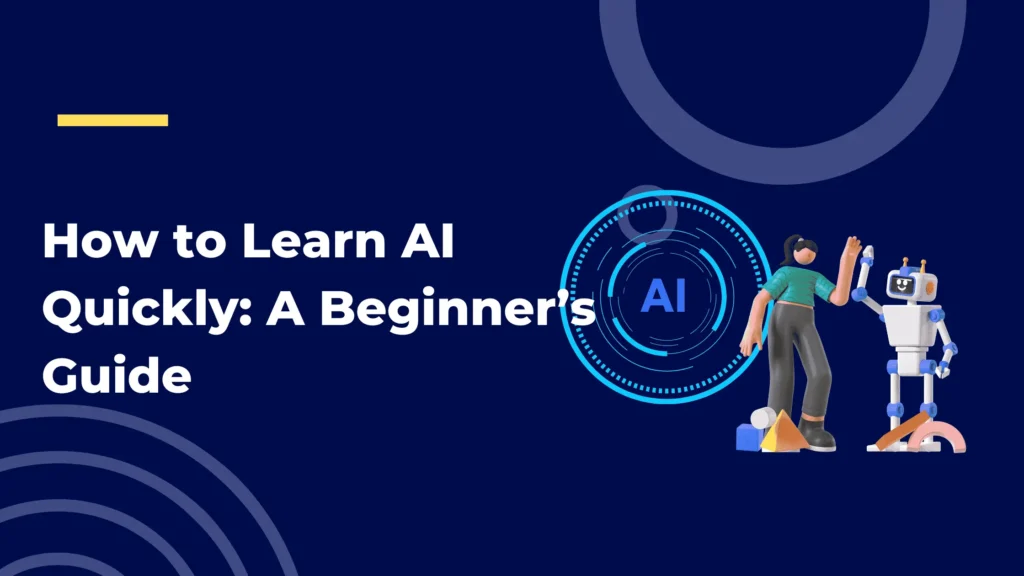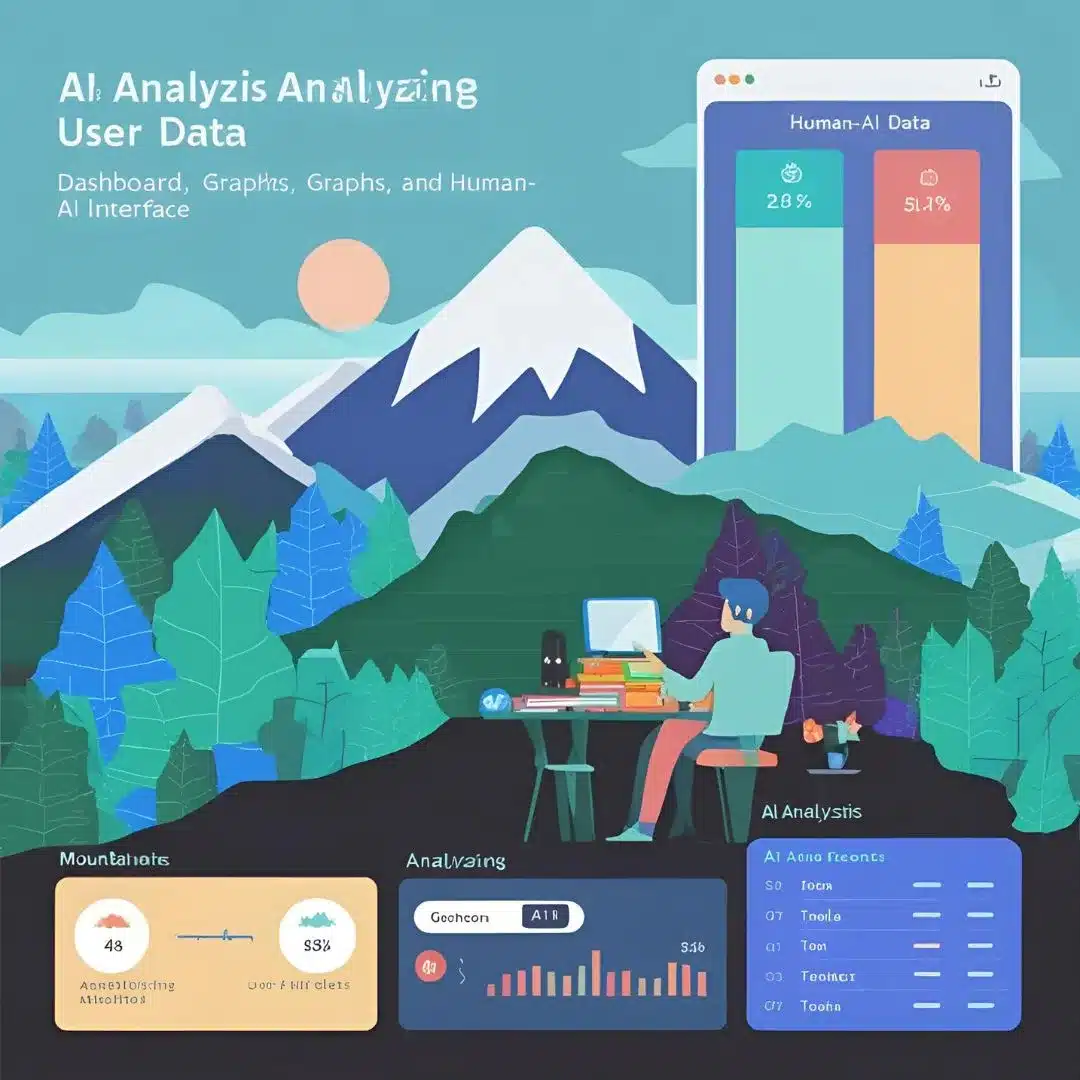Learn AI Quickly: Artificial intelligence (AI) has become one of the transformative technologies of our time, affecting all industries from healthcare to finance. The increasing demand for AI is driving many people to learn how to enter the field. While learning AI may seem daunting, with the right strategies, you can master the concepts quickly and efficiently. It will have an impact on your understanding. Whether you’re just starting out or looking to improve your skills, this guide is designed to get you started quickly.

Table of Contents
ToggleWhy AI Is Worth Learning
AI is revolutionizing the way businesses and societies function. From automating tasks to analyzing complex data and improving decision-making, AI is reshaping industries. Knowing AI can open doors to numerous career opportunities, including roles like data scientist, machine learning engineer, and AI consultant. Beyond career growth, understanding AI allows you to participate in cutting-edge innovations in healthcare, robotics, and beyond.
Focus Areas in AI
To learn AI quickly, it’s important to concentrate on foundational areas that offer the most value. Here’s a quick overview of the essential topics:
- Machine Learning (ML): The backbone of AI, focusing on algorithms that help machines learn from data and improve over time.
- Deep Learning and Neural Networks: Inspired by how the human brain works, neural networks form the basis of deep learning models used for complex tasks.
- Natural Language Processing (NLP): AI that enables computers to understand, interpret, and respond to human language.
- Computer Vision: This area deals with enabling computers to understand and process images and videos.
- Data Science: Essential for working with large datasets, which are the building blocks for AI models.
Steps to Learn AI Quickly
1. Grasp the Basics with Accessible Resources
To get started with AI, you don’t need to be a math genius. There are plenty of beginner-friendly courses and materials available to help you understand the core concepts.
- Free Online Tutorials: Websites like Coursera, Udemy, and edX offer AI courses designed for absolute beginners. Courses like “AI For Everyone” by Andrew Ng are excellent starting points.
- Read Introductory Books: Consider reading books like “Artificial Intelligence: A Very Short Introduction” by Margaret A. Boden, which breaks down complex concepts into easily understandable pieces.
2. Master Python Programming
Python is the go-to programming language for AI, thanks to its simplicity and powerful libraries like TensorFlow and scikit-learn. Having a good grasp of Python will help you interact with AI tools and develop your own projects.
- Recommended Python Course: Start with Python for Everybody on Coursera, which covers the essentials and is perfect for beginners.
3. Take Specialized AI Courses
Enroll in courses that offer hands-on experience. This will allow you to apply your learning and accelerate your understanding.
- Best Free Course: The Elements of AI course offers an easy-to-understand, self-paced introduction to AI.
- Focused Course: If you’re ready for more depth, the Deep Learning Specialization by Andrew Ng covers machine learning and deep learning comprehensively.
4. Work on Real-World Projects
The fastest way to solidify your AI skills is by working on projects. Practical experience is key to understanding how AI works in real-world applications. Platforms like Kaggle offer datasets and coding challenges to help you apply your skills.
- Project Ideas:
- Build a basic image recognition system using TensorFlow.
- Create a chatbot using Python’s NLP libraries.
- Work on data science projects to predict trends and patterns.
5. Join AI Communities
Engaging with others who are learning or working in AI is a great way to accelerate your progress. Online forums and communities allow you to ask questions, share projects, and learn from others.
- Recommended AI Community: The Machine Learning subreddit is one of the largest and most active communities, with plenty of discussions, advice, and resources for learners.
Quick Tips for Learning AI Fast
- Set Small, Achievable Goals: Instead of trying to learn everything at once, set milestones, such as mastering Python basics or completing a specific AI course.
- Practice Coding Regularly: Focus on practical coding exercises to deepen your understanding. Platforms like Google Colab allow you to experiment with AI models without needing expensive hardware.
- Stay Updated with AI Trends: Follow AI blogs, podcasts, and industry leaders on social media to stay informed about new tools, techniques, and research. Keeping up with trends will motivate you to continue learning.
- Use Pre-Built Tools: You don’t have to build everything from scratch. Tools like TensorFlow and Keras have built-in functionalities that help you create AI models faster.; Learn AI Quickly: Beginner Guide to Success
The Role of AI in Personalizing User Experience | UX Trends & Tools
Conclusion: Learn AI Quickly: Beginner Guide to Success
Learning AI quickly is possible with a focused and hands-on approach. Start by understanding the basics of machine learning, neural networks, and data science, and then progress to more advanced topics like deep learning. Through a combination of learning and practical application, you can gain the skills needed to succeed in the AI industry.
Whether you’re looking to jumpstart a career or simply expand your knowledge, the time to start learning AI is now. With countless resources and tools at your disposal, AI mastery is within your reach.
References
- Elements of AI. (n.d.). Retrieved from https://www.elementsofai.com
- Coursera. (n.d.). Python for Everybody. Retrieved from https://www.coursera.org/specializations/python
- Coursera. (n.d.). Deep Learning Specialization. Retrieved from https://www.coursera.org/specializations/deep-learning
- Kaggle. (n.d.). Home. Retrieved from https://www.kaggle.com
- Reddit. (n.d.). AI & Machine Learning. Retrieved from https://www.reddit.com/r/MachineLearning/
CheckOut this one also:



